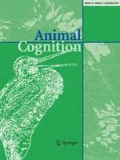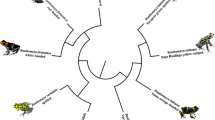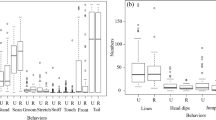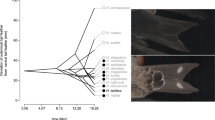Abstract.
We present an experiment showing that New Caledonian crows are able to choose tools of the appropriate size for a novel task, without trial-and-error learning. This species is almost unique amongst all animal species (together with a few primates) in the degree of use and manufacture of polymorphic tools in the wild. However, until now, the flexibility of their tool use has not been tested. Flexibility, including the ability to select an appropriate tool for a task, is considered to be a hallmark of complex cognitive adaptations for tool use. In experiment 1, we tested the ability of two captive birds (one male, one female), to select a stick (from a range of lengths provided) matching the distance to food placed in a horizontal transparent pipe. Both birds chose tools matching the distance to their target significantly more often than would be expected by chance. In experiment 2, we used a similar task, but with the tools placed out of sight of the food pipe, such that the birds had to remember the distance of the food before selecting a tool. The task was completed only by the male, who chose a tool of sufficient length significantly more often than chance but did not show a preference for a matching length.
Similar content being viewed by others
Author information
Authors and Affiliations
Additional information
Electronic Publication
Rights and permissions
About this article
Cite this article
Chappell, J., Kacelnik, A. Tool selectivity in a non-primate, the New Caledonian crow (Corvus moneduloides). Anim Cogn 5, 71–78 (2002). https://doi.org/10.1007/s10071-002-0130-2
Received:
Revised:
Accepted:
Issue Date:
DOI: https://doi.org/10.1007/s10071-002-0130-2




